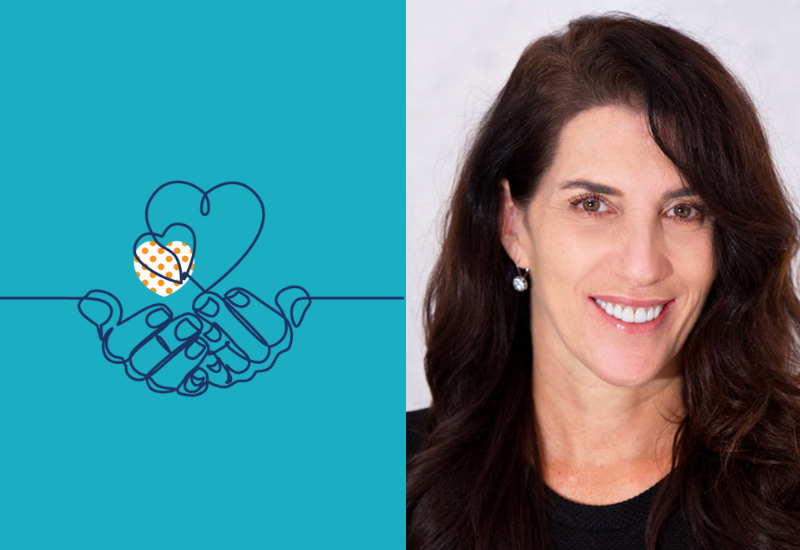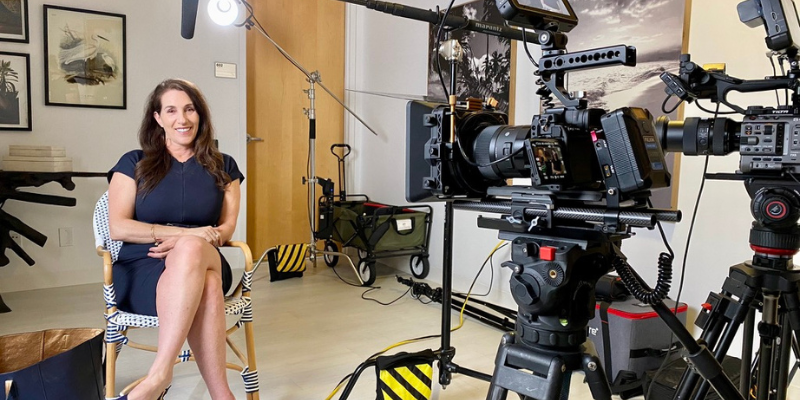Recently, we sat down with Galen Hope Co-Founder Dr. Wendy Oliver-Pyatt to discuss why Galen Hope came to be, and what makes us different.
You have over 30 years of experience in eating disorders and mental health treatment. What were your goals in founding Galen Hope?
I co-founded Galen Hope, along with Dr. Amy Boyers, after years of working in higher levels of eating disorders and mental health care, and recognizing the need for more community involvement, to help people with the transition from higher levels of care back to the real world.
All of my treatments over the years have always been founded on the principles of
- high frequency of individual therapy,
- integrated family therapy,
- health at every size as a foundation,
- a high attention to the medical and psychiatric issues that may be at play,
- and always exposure therapy to what’s out in the world for the patients. Exposure therapy is integral to care.
But what we’ve done at Galen Hope is really bake in that process of reintegration within the community as a part of the foundation of treatment.
And that ties back to my early career as a psychiatrist when I founded the very first PACT program in the state of Nevada.
PACT
Can you tell us more about PACT and what it seeks to accomplish?
PACT stands for “Program for Assertive Community Treatment.” And what PACT was really about was taking all of the resources that were put into inpatient care of severe mental illness and working with patients in a community setting with a very high attention to the role of the case manager.
I was so amazed at the work we were able to do with moving people from an inpatient setting back into the community. I had it in the back of my mind that this model of care could be applied to all forms of mental illness, not just severe mental illness.
How do you move toward community reintegration for teens and adults in treatment at Galen Hope?
At Galen Hope, one of the things that’s very special is the involvement of our Care Partners.
Our Care Partners are highly experienced individuals that have worked in higher levels of care, who work with the treatment team on a non-hierarchical level and really help people figure out what matters to them in life.
As the person is healing, we support them in reestablishing in the community, so that when they leave our care after that period of time when they’ve worked on that, they are already established in a meaningful participation in the world outside of treatment.
Community
When you talk about community to someone that is not necessarily familiar with this whole process, what does that mean?
Well, one of the taglines of Galen Hope is Belong, Heal and Grow. And that’s both within our community here at Galen Hope, but also finding a place to belong outside of treatment is a very important part of the healing process.
We all want attachment. We all want meaning. We all want to feel that in some way we’re able to be a part of something bigger than ourselves and outside of our individual life.
So helping people get in touch with their core values and their passions as a part of the treatment experience, and then really working with that and practicing that within the community as a part of the baked in treatment is something that’s very special.
Care Partners
Care Partners are integral to the treatment team at Galen Hope. How do they support clients during their treatment journey?
One of the things that we think that our Care Partners are really, really good at is helping people find their strengths and their passions so that as a part of the treatment, they are able to practice that and feel confident out in the world far, far earlier than when they leave treatment.
One of the problems that we have in higher levels of care is that someone who struggles after treatment is called “treatment refractory” or “treatment resistant,” when in fact, I think more often than not, it’s that we have not done our part as far as providing treatment. And the onus is really on us as providers to figure out what is actually needed for people to heal.
People that are coming to treatment are putting a great investment of time, energy and money into receiving our care. And they’re also foregoing a significant amount of autonomy by coming under our care.
So, we have a responsibility to help them figure out what needs to be done for them to actually heal.
I think that at some point in the future, we’ll look back on treatment and wonder what we were even thinking to expect people to just come into our environments and get to a certain point within our confined environment and then return back to their home environment and that we somehow think magically they’re going to just be okay.
I think we’re going to look back and wonder, why on earth did we even think that was possible?
So rather than just patients receiving care in our setting and on our schedule and on our time, we also need to be out in the community with the patient and their setting, in the parts of their life that matter to them, that are part of their daily routine, and really ensure that they’re stable in those environments before we release them from our care.
Weight Stigma
Weight stigma is rampant in our society. Can you tell us how it impacts psychological and physical health?
Weight stigma is something that I’ve been very concerned about since before I was even doing a higher level of care. The impact of weight stigma is so toxic within our culture. And sadly, weight stigma is something that is socially reinforced. It’s reinforced in doctors’ offices. It’s reinforced in schools. It’s reinforced in public service announcements.
And weight stigma is a painful experience for the person who’s experiencing the weight stigma. The person senses or hears directly that who they are physically is not acceptable, and who that person is isn’t okay and needs to change in some way.
Not being accepted for who we are in the here and now is a very painful experience. We all want to feel that we are lovable, that we can form connections and that we’re respected.
And all of this is connected to psychiatric needs? Can you speak more to that?
Among the many aspects of treatment that really must be in place for a person who’s receiving care in a higher level of care is a really impactful psychiatric assessment. Because we so often see people who are misdiagnosed, or they are not getting proper psychiatric management.
I have seen people come to my care that have major depression, that have been on the same medication regimen for one or two years and are struggling terribly. And the problem is that the person loses hope and feels like it’s something they’ve done to still be struggling, when in fact they haven’t really gotten the treatment that is integral to their healing process.
So collaborative psychiatric management is vital to the person being able to heal.
One of the problems for people with mental health conditions and eating disorders is that when you have an untreated psychiatric condition, it drives the behavior forward because the behavior is, if you will, the way of coping, the way of managing the underlying pain of a co-occurring psychiatric condition, whether it’s OCD, whether it’s trauma, depression, bipolar disorder, or whatever.
Those experiences that are going on internally for the person lead to behaviors. A lot of times we go around chasing behaviors and wanting people to stop doing behaviors. But if we don’t treat the underlying symptoms, we can’t really expect them to not have the behaviors.
Psychiatric care has always been very central to everything I’ve ever done in the higher level of care. In addition, we have to be able to look at the medical aspect of the person’s process as well.
We take a very good look at the medical situation before the person comes in and align with and coordinate care with medical providers as well.
THE ROAD TO WELLNESS STARTS BY SEEKING HELP. TODAY.
Built on the principles of assertive community treatment, Galen Hope is an eating disorder and mental health treatment center offering individualized treatment options that include Intensive Outpatient (IOP) and Partial Hospitalization Programs (PHP). As a “Community of Integrated Wellness,” we pride ourselves in fostering a thoughtful and meaningful care experience that can guide our clients on their road to recovery and increased quality of life, regardless of diagnosis. Galen Hope currently offers separate, age-specific programming for female and transfeminine adolescents ages 12-17 and adults 18 and up, as well as a gender-specific programming for males and transmasculine individuals with eating disorders and primary mental health diagnoses.
To learn more, or to join our community for integrated wellness, please contact us today.
Belong. Heal. Grow.


